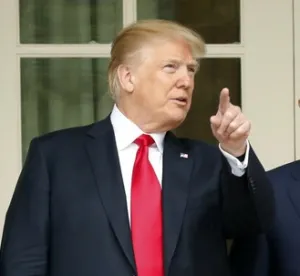Flying under the radar in past years, the recovery of Rare Earth Elements (“REE”) and the importance of REE to manufacturing in the United States are now recognized as crucial issues implicating national security.
REEs - used in the production of everything from appliances to cars to computers to national defense applications - have been important to the United States’ economy and national security for many years. Nevertheless, the United States has continued ceding production and mining of REEs to China.
China is widely reported to hold most of the world’s capacity for rare earth mining and production with recent estimates at near 80% of world supplies.
On July 22, 2019, President Trump made official determinations under Section 303(a)(5) of the Defense Production Act of 1950, as amended, 50 U.S.C. 4533, regarding the shortfall of capabilities within the defense industrial base to produce multiple categories of REE. These Presidential Determinations state that “the domestic production capability for” the following are “essential to the national defense:”
-
Rare Earth Metals and Alloys
-
Heavy Rare Earth Elements (separation and processing)
-
Light Rare Earth Elements (separation and processing)
-
Samarium Cobalt Rare Earth Permanent Magnets
-
Neodymium Iron Boron Rare Earth Sintered Material and Permanent Magnets
84 Fed. Reg. 35,967, 35,969, 35,971, 35,973, and 35,975 (July 25, 2019). The presidential memoranda goes on to state that “[w]ithout Presidential action [under the Act], United States industry cannot reasonably be expected to provide the production capability for [these rare earth materials/elements] adequately and in a timely manner. [P]urchases, purchase commitments, or other action pursuant to section 303 of the Act are the most cost-effective, expedient, and practical alternative method for meeting the need for this critical capability.” Id.
The Trump administration has previously taken steps to address the production and development of REE in the United States. On December 20, 2017, President Trump signed Executive Order 13817 setting forth “A Federal Strategy to Ensure Secure and Reliable Supplies of Critical Minerals.” Actions under Executive Order 13817 are ongoing, including the identification of critical minerals, efforts to develop faster permitting, and finding new or better sources of those critical minerals. The President’s new determinations under the Defense Production Act of 1950 provide an additional step toward the secure and reliable supplies of rare earths and other critical minerals, paving the way for federal funding to enable the production of these REE in the United States.
Given the ongoing trade dispute between China and the United States, including U.S.-imposed tariffs on Chinese exports, the United States’ need for REE production capacity becomes more acute. China has been politically underscoring its position as the world leader in REE production, and the United States currently has very limited ability for domestic production of important REEs, such as those used in permanent magnets (used in EVs, defense applications and other domestic uses) and consumer and defense electronic devices.
Given the uncertain political climate, the President’s action to secure additional avenues for REE development may be a meaningful step toward a renaissance in U.S. REE production and development. Indeed, in addition to the ongoing work in the eastern coalfields, companies are working toward REE production through recycling, and there are new efforts to produce REEs commercially within the United States.
These developments go hand-in-hand with federally funded research efforts at West Virginia University and other universities to produce rare earths from coal and coal-based resources, including coal wastes. Successful rare earth production from coal or coal waste could translate to significant value and opportunity for owners of or those with other rights to the coal, coal waste, or land where those REEs are located.





 />i
/>i
